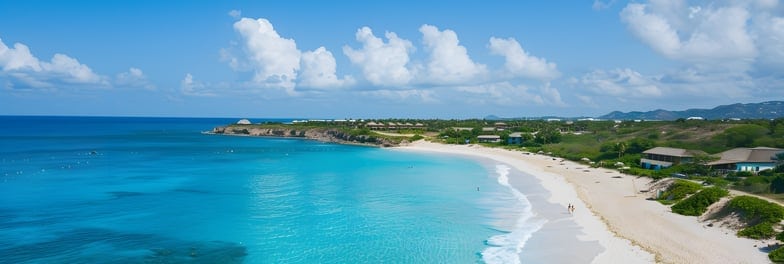Affordable Medical Education in the Caribbean
Posted on 15 Apr 2025

Table of Contents


- Affordable Medical Education in the Caribbean
- Why Study Medicine in the Caribbean?
- Affordable Caribbean Medical Schools
- Tuition Fees and Cost of Living
- Accreditation and Recognition
- Admission Process and Requirements
- Life as a Medical Student in the Caribbean
- Common Myths and Realities
- Final Thoughts: Is It Right for You?
- Frequently Asked Questions (FAQ)
Affordable Medical Education in the Caribbean
💡 Looking to study medicine without the heavy price tag? The Caribbean has become a global hub for affordable, high-quality medical education—especially for international students seeking English-taught programs with recognized accreditation.Whether you’re aiming for a U.S. Residency, UK Specialty Training, or global practice, Caribbean medical schools offer a flexible, cost-effective pathway to your dream career.Why Study Medicine in the Caribbean Islands?
Here’s why thousands of students choose the Caribbean every year:- 🌍 Global Recognition: Schools are accredited and recognized by the ECFMG, FAIMER, WDOMS.
- 🗣️ English-Taught Programs: Course of instruction and practical training are in English.
- ✈️ Accessible Location: Have international airports.
- 🏥 U.S./UK Clinical Rotations: Many schools offer rotations in the U.S.- and UK-based hospitals.
Affordable Caribbean Medical Schools
Below is a quick look at five of the most affordable and recognized medical schools in the Caribbean:🏥 New Anglia University, Anguilla
Estimated Tuition: $3,600/term
Rotations: Hospitals in the U.S., UK
🏥 St. James School of Medicine, Saint Vincent
Estimated Tuition: $8,900/term
Rotations: Hospitals in the U.S.
🏥 Commonwealth University College of Medicine, Saint Lucia
Estimated Tuition: $8,000 (one-time payment)
Rotations: Hospitals in Saint Lucia
🏥 Victoria University, Barbados
Estimated Tuition: $8,000/year
Rotations: Hospitals in Guyana

Tuition Fees and Cost of Living
Tuition Overview:- Budget-friendly schools: $4,500–$9,000 per term
- Mid-range institutions: $10,000–$15,000 per term
- Premium Caribbean schools: $18,000–$25,000 per term
- Housing: $500–$700
- Food: $400–$700
- Transport: $50–$100
- Utilities & Internet: $100–$150
Accreditation and Recognition
When choosing a medical school, accreditation matters. It determines your eligibility for licensure exams and residencies.- ECFMG: Required for USMLE and U.S. residency
- WDOMS: Global listings and recognition

Admission Process and Requirements
While entry requirements vary, most schools ask for:- A minimum GPA of 2.5–3.0
- Transcripts and personal statement
- Letters of recommendation
- Proof of English proficiency (if applicable)
Timeline: Flexible Start Dates to Suit Your Schedule
Caribbean medical schools typically offer three intakes per year—January, May, and September—providing flexibility for students to begin their studies at a time that best fits their personal and academic plans. Whether you’re a recent graduate or making a career change, this rolling admissions structure allows you to start your medical journey without waiting a full year for the next opportunity.Life as a Medical Student in the Caribbean
Life in the Caribbean is more than just sunshine and beaches—it’s a focused, immersive academic journey designed to shape future healthcare professionals.- ✅ Modern Campuses and Labs Our institutions feature state-of-the-art facilities, equipped with advanced labs and technology to support a hands-on, high-quality education.
- 🤝 Diverse International Student Body Join a vibrant, multicultural community where students from around the world come together, creating a rich environment of collaboration and global perspective.
- 🏥 Clinical Training in U.S./UK Hospitals Gain invaluable real-world experience through clinical rotations at accredited hospitals across the U.S. and UK, preparing you for international medical practice.
- 🎓 Clubs, Wellness Programs, and Mentorships Beyond the classroom, students have access to support networks, wellness initiatives, and mentorship opportunities—ensuring personal growth alongside academic success.
Common Myths and Realities
| Myth | Reality |
| “Caribbean schools are not accredited by International Bodies.” | It is compulsory to be accredited by both a national and international body. |
| “It’s hard to get licensed after graduation.” | Licensing is a straightforward process that is done via USMLE, PLAB, etc. |
| “Education follows the local Standards.” | Medical schools offer rigorous, U.S.- and UK-style study programms complying with the WFME Standards. |
Final Thoughts: Is It Right for You?
Who Should Consider Studying in the Caribbean?
- 🌍 Students Seeking Affordable Alternatives to U.S./UK Schools Caribbean medical universities offer quality education at a more accessible cost compared to many institutions in the U.S. or UK. With flexible payment options and lower tuition fees, they provide an excellent return on investment without compromising academic standards.
- 🌐 International Students Looking for English-Taught MBBS/MD Programs For students from non-English-speaking countries or regions where medical education in English is limited, Caribbean schools present an ideal solution. All programs are delivered in English, with an international curriculum designed to meet global medical licensure standards.
- 🎓 Those with a Passion for Medicine but with Non-Traditional Academic Backgrounds. If you’re a dedicated student with the drive to pursue medicine but don’t come from a conventional academic path, Caribbean schools often offer more flexible admissions criteria. Many institutions provide premedical programmes to support your journey, helping you transition smoothly into full medical studies.



















